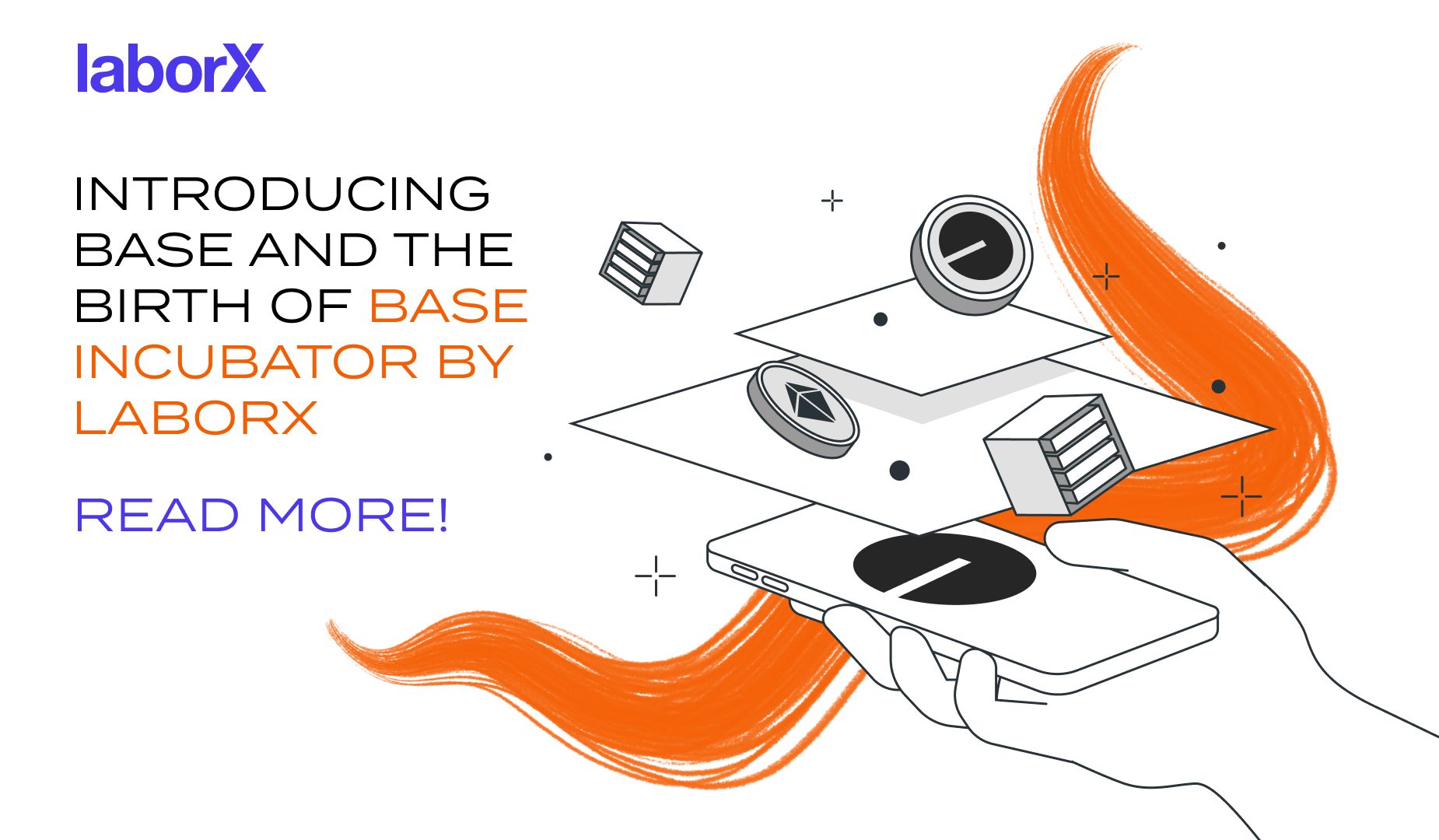
Embracing Change: HR in the World of Digital Assets
Hotcoin’s HR shares her journey from traditional industries to the world of Web3 and crypto, highlighting key insights on thriving in this space.
Read
Soulbound tokens (SBTs) are identity tokens capable of storing highly granular data of all kinds about people and organizations on the blockchain, which can then be used by a wide range of social Web3 applications that rely on broader information than DeFi dApps require.
To date, blockchain’s use cases have focused on decentralised finance (DeFi) applications. While these are important in their own right, Web3 promises far more, including the ability to decentralise and reimagine our social relationships.
Non-fungible tokens, or NFTs, have so far been used mainly as a means of trading digital art and representing other unique digital (and sometimes physical) assets. However, they also offer the ability to store all kinds of personal information, including achievements, experience, and innate characteristics, enabling the creation of far-reaching ID cards hosted on the blockchain. These so-called Soulbound tokens (SBTs) are tied to the individual or entity forever, allowing Web3 to move beyond crypto and fintech to more holistic, social applications.
What Are Soulbound Tokens (SBT)?
The concept of Soulbound tokens (SBTs) was first proposed in May 2022, in a paper entitled Decentralized Society: Finding Web3’s Soul, co-authored by Ethereum co-founder Vitalik Buterin, along with Puja Ohlhaver, a lawyer, and E. Glen Weyl, an economist and researcher on decentralised social technologies.
The authors argue that the current iteration of Web3 is mainly concerned with managing digital financial assets. DeFi dApps are trustless, relying on collateral and ‘code as law’ to enforce the services they offer, such as trading, lending, and derivatives. However, many critical economic activities – including uncollateralised lending and creating a personal brand or reputation – rely on social relationships of trust, which DeFi cannot facilitate.
The writers’ answer to this problem is the distribution of non-transferable or ‘soulbound’ tokens, which represent almost any piece of information about an individual or organisation you could want to record: their academic achievements and work experience, medical history, criminal records, descriptions of physical characteristics, and much more. These can be used within a far wider online system to establish reputation, provenance, background, and so on.
What’s more, SBTs enable new applications that are not currently possible under DeFi’s model of trustless financial relationships, which is useful as far as it goes but cannot, by definition, facilitate a trust-based economy. The paper describes this more nuanced, diverse system as “decentralised society”, or DeSoc.
Soulbound tokens are, at their heart, simply non-transferable NFTs that include specific pieces of information.
NFTs have proven to be one of the most promising and versatile applications for blockchain technology. While DeFi typically relies on fungible digital assets – that is, tokens that have a large supply and that are highly divisible – NFTs are unique or limited-edition and indivisible tokens that can be used to represent one-off assets. They also have a critical role to play in online identity in the Web3 ecosystem. Since these are special pieces of digital property, they can be used to signify anything about a person, from their achievements to their eye colour.
The idea of ‘soulbound’ tokens comes from World of Warcraft, the popular online game that also gave Vitalik Buterin the name ‘Ethereum’ for the smart contract platform he co-created. In WoW, an item that is soulbound is permanently attached to a character, and so cannot be transferred or traded. Similarly, SBTs cannot be moved from the user’s address. They are issued by ‘souls’ – individuals, organisations, or other entities – to other souls, but once associated with a soul, they cannot be transferred, sold or even stolen.
Consequently they have no financial value – at least, no direct financial value. However, SBTs represent credentials and social identity, and as such they confer reputation and intangible value upon the owner. Individual SBTs might record incredibly trivial pieces of information about a person – that they attended a particular concert, or drank a coffee at a certain cafe, or have achieved a certain level in an online game. But they could equally record a position of influence, an important educational qualification, medical data, membership of a society, and so on.
Together, all of the different SBTs attached to a soul could form a complex tapestry of data, contributed by thousands of other souls – government bodies, companies, educational institutions, religious organisations, NGOs, friends, relatives, online applications, and more. All of this would form a transparent, verifiable reputation mosaic, stored on the blockchain and immutably linked to one entity.
There is no reason why a person should not have multiple soul wallets, each dedicated to a different purpose. For example, they may have one soul for educational qualifications, another for work history, a soul for medical data, and so on. Taken to its extremes, your soul – or collection of souls – would store a vast range of information about you, contributed in the form of individual NFTs, which together make up your online identity.
For some critics, the idea of SBTs has proven controversial, since a vast amount of information will be available, which could therefore be abused as a tool of surveillance, or even used by criminals to target certain individuals. China’s social credit system, which is leveraged as a means of social control, provides a precedent for how soulbound tokens could be misused if they were widely integrated into DeFi and Web3 services. These problems could at least be partly mitigated by encrypting information so that users would be able to share it only with those they wanted to know it.
The applications for soulbound tokens are almost endless. Any time a soul wants to permanently attach a piece of information of any kind to another soul, that is a use case for an SBT. Just some of the possibilities include:
One of the most obvious use cases for SBTs is identity verification. SBTs would be allocated by approved souls (for example, dedicated government bodies or third parties entrusted with that task), recording specific information about a person to their blockchain address. This might include one or more photographs; characteristics such as height, eye and hair colour, and so on; physical address and email address; phone number; passport number, etc. It might also include information from their online footprint, including social media profiles, which are likely to form an increasingly important part of establishing identity in the future.
It is often difficult to verify individuals’ education, because different institutions’ systems tend to be siloed and fragmented. SBTs offer the perfect solution to this. Each school, college, university or other educational organisation (each of them a soul) would issue SBTs to attendees, recording their attendance, qualifications, grades, extra-curricular interests, and any other important information. These could then readily be checked by other educational institutions or employers who required a certain threshold in a subject, or a particular practical qualification, before admitting an applicant.
Similarly, workplaces might issue their own SBTs, providing an ongoing record of a person’s employment history, including places of work, on-the-job learning and new skills they had mastered. Together with education-related SBTs, this would form a kind of digital CV that would show a continuous thread of qualifications and experience.
Another ideal use case for SBTs is storing medical information from one or more healthcare services, accurately and in a form that could be encrypted so that the owner could choose to share different elements selectively, depending on the circumstances. Switching healthcare providers is often a slow and complex process, since records are not always easy to transfer. Recording information as SBTs makes medical data highly portable, speeding up the process of familiarising new providers with your history.
The type of data attached to a soul wallet might include information that people would not want widely known about themselves – but that there should nonetheless be a permanent record about. Information about previous criminal convictions or civil offences (down to the level of parking tickets and traffic violations) might be distributed by soul organisations in the justice sector. Once again, these could be encrypted so that they were not transparently accessible to everyone, but permission to view them could be selectively granted when a person was, for example, applying for a job or position of responsibility.
Because SBTs can be used to verify personal identity, they offer new possibilities for voting – whether in regular democratic elections, or for DAOs.
DAO votes are typically conducted using governance tokens, with larger holders having more voting power. One-user-one-vote systems are difficult to implement due to the problem of Sybil attacks (where users can create many wallets and vote with them all, at little cost). By checking that each user is unique, the members of a community can vote fairly. Communities can be defined in any number of ways, subject only to the data available from users’ SBTs. For example, an online community of gamers could vote on a proposal, with only those gamers who had reached a certain experience level being eligible. Alternatively, users who had gained a higher reputation score within the community – based on longevity within the community, feedback and recognition from other users, and so on – might be granted more influence in a vote. It would also be possible to restrict voting on specific matters to a certain geographic community, religious organisation, age group, and so on.
Membership to private societies, and access to premium content via subscriptions, are further use cases for SBTs. These could come with expiry dates, meaning that although the SBTs would remain in a user’s wallet after a certain period of time, proving that they had belonged to an organisation in the past, they would not be considered active members unless they renewed their subscription.
In the future, SBTs could be used to verify personal information on all kinds of platforms. For example, LinkedIn might require tokenised proof that you attended a prestigious college, worked for a well-known company, and so on – rather than people just having to take your word for it.
There are numerous use cases for soulbound tokens within companies’ HR departments and processes. These include:
Transparency around these enables HR departments to operate more efficiently and make fairer, better-informed decisions.
As a blockchain-based freelancing and employment platform, LaborX is in a strong position both to benefit from the growing interest in soulbound tokens, and to contribute to this new application of NFTs.
As things already stand, LaborX provides a decentralised reputation system that offers an immutable record of users’ interactions and feedback, both good and bad. While a LaborX account is not a soul in its own right, it provides similar benefits and could act as the basis for a soul in the future. That information is non-transferable and permanent, so additional data can be added but no events can be removed.
At present, the LaborX team is monitoring developments in the SBT space, which is still at a very early stage, and considering if and how SBTs might best be used to benefit job seekers and customers on the platform. As this new set of use cases progresses, we will decide whether to implement new functionality.
In the meantime, we want to encourage users to make use of any SBTs they receive from other sources, by including them on their LaborX profile so that others who are seeking or offering work can view them. This will also help to inform our plans, since we will learn more about how SBTs are being used and some of the ways we might be able to leverage this new functionality in the future.

Hotcoin’s HR shares her journey from traditional industries to the world of Web3 and crypto, highlighting key insights on thriving in this space.
Read
Discover how Web3 is reshaping HR practices with insights from a leading expert in the field.
Read
Discover Base's innovative L2 solution addressing scalability, security, and user experience challenges in crypto. Learn about Base Incubator by LaborX, fostering growth and innovation within the Base ecosystem.
Read